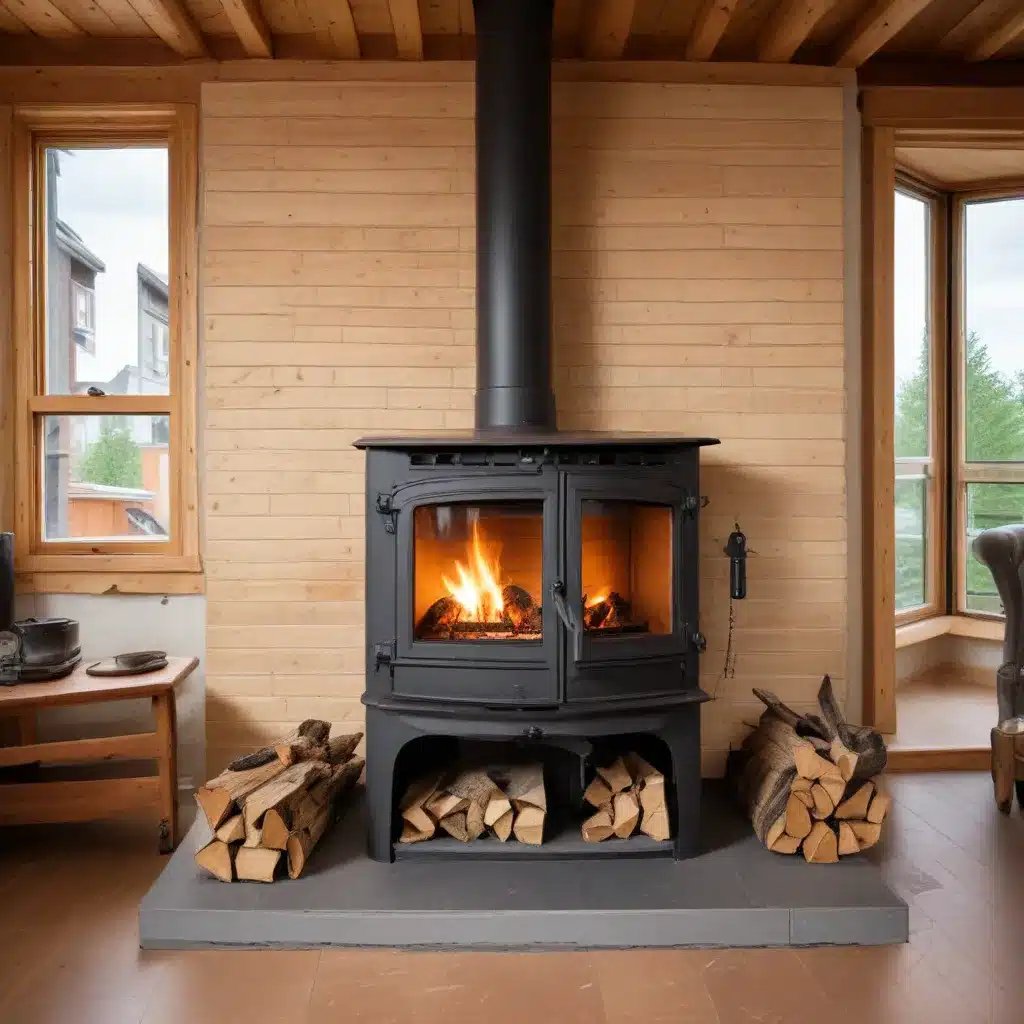
Navigating the Complexities of Wood Stove Regulations in Diverse Residential and Commercial Environments
As a seasoned expert in wood stoves and heating solutions, I understand the importance of navigating the intricate web of regulations when it comes to installing these appliances, particularly in mixed-use developments. Whether you’re a homeowner, a property manager, or a contractor, ensuring your wood stove installation complies with local, state, and federal guidelines is crucial for the safety, efficiency, and longevity of your heating system.
In this comprehensive article, we’ll dive deep into the various regulatory considerations you need to keep in mind when installing wood stoves in mixed-use settings, such as residential-commercial buildings or multi-family housing complexes. By exploring real-world examples and providing practical insights, we’ll equip you with the knowledge to achieve regulatory harmony and create sustainable, energy-efficient heating solutions that meet the diverse needs of your community.
Understanding the Regulatory Landscape
The regulatory landscape for wood stove installations can be quite complex, as it involves a myriad of local, state, and federal guidelines. These regulations are often designed to ensure public safety, promote energy efficiency, and minimize environmental impact. As such, it’s crucial to familiarize yourself with the specific requirements in your area before embarking on any wood stove installation project.
One key factor to consider is the zoning and land-use regulations in your mixed-use development. For example, the Warwick, RI Zoning Ordinances outline specific guidelines for the types of heating systems permitted in different zoning districts, including residential, commercial, and mixed-use areas. Failure to adhere to these regulations could result in costly fines or even the removal of your wood stove installation.
Similarly, the Saugus, MA Zoning Laws provide detailed information on the permitting process and code requirements for wood stove installations, with specific considerations for fire safety, air quality, and energy efficiency. Understanding these local regulations is essential for ensuring a seamless and compliant installation process.
Navigating Unique Challenges in Mixed-Use Developments
Mixed-use developments present a unique set of challenges when it comes to wood stove installations. These types of properties often combine residential, commercial, and sometimes even industrial spaces, each with its own set of regulatory requirements and user needs.
One common issue that arises in mixed-use settings is the potential for conflicts between the different stakeholders, such as homeowners, business owners, and property managers. For instance, a residential tenant may desire the cozy ambiance and cost-effective heating of a wood stove, while a neighboring commercial tenant may be concerned about the impact on air quality or the risk of fire. Striking a balance between these competing interests is essential for maintaining harmony within the development.
To address this, it’s important to familiarize yourself with the ADU (Accessory Dwelling Unit) regulations in your area, which often provide guidance on the installation and use of wood stoves in shared or mixed-use spaces. These regulations may include specific requirements for emissions, ventilation, and fire safety, as well as protocols for addressing potential conflicts between tenants.
Embracing Energy Efficiency and Sustainability
As the demand for more sustainable and energy-efficient heating solutions continues to grow, wood stove installations in mixed-use developments must also consider the broader environmental impact. Regulatory bodies are increasingly focused on promoting the use of clean-burning, high-efficiency wood stoves that minimize air pollution and greenhouse gas emissions.
When selecting a wood stove for your mixed-use property, it’s crucial to research the latest EPA (Environmental Protection Agency) certifications and emissions standards. Opting for an EPA-certified wood stove that meets or exceeds the current regulations can not only help you comply with environmental guidelines but also contribute to the overall energy efficiency and sustainability of your heating system.
Furthermore, many local and state governments offer incentives or rebate programs for homeowners and businesses that invest in energy-efficient heating solutions, including wood stoves. By staying informed about these initiatives and incorporating them into your planning, you can potentially offset the upfront costs of your wood stove installation while also aligning with the broader goals of environmental stewardship.
Fostering Collaboration and Communication
Successful wood stove installations in mixed-use developments often hinge on effective collaboration and communication between all stakeholders. This includes property owners, tenants, local authorities, and even the wood stove installation professionals themselves.
Proactive engagement with local building and fire departments can help you navigate the permitting process and ensure your wood stove installation meets all necessary safety and code requirements. By establishing open lines of communication, you can also address any concerns or questions that may arise from other tenants or community members, fostering a sense of transparency and trust.
Additionally, consider organizing informational sessions or workshops for your mixed-use development’s residents and business owners. These educational opportunities can help everyone understand the benefits, proper use, and maintenance of wood stoves, as well as the applicable regulations. By empowering your community with knowledge, you can cultivate a shared understanding and commitment to responsible wood stove usage.
Conclusion: Embracing Regulatory Harmony for Sustainable Heating
Navigating the regulatory landscape for wood stove installations in mixed-use developments can be a complex undertaking, but it is essential for ensuring the safety, efficiency, and longevity of your heating system. By staying up-to-date with local, state, and federal guidelines, selecting the right wood stove model, and fostering collaborative communication within your community, you can achieve regulatory harmony and create a sustainable heating solution that benefits everyone.
Remember, the Wood Stove Heaters blog is always here to provide practical tips, in-depth insights, and expert guidance on all your wood stove and heating-related needs. Whether you’re a homeowner, property manager, or contractor, we’re committed to empowering you with the knowledge and resources to make informed decisions and stay compliant with the ever-evolving regulatory landscape.


